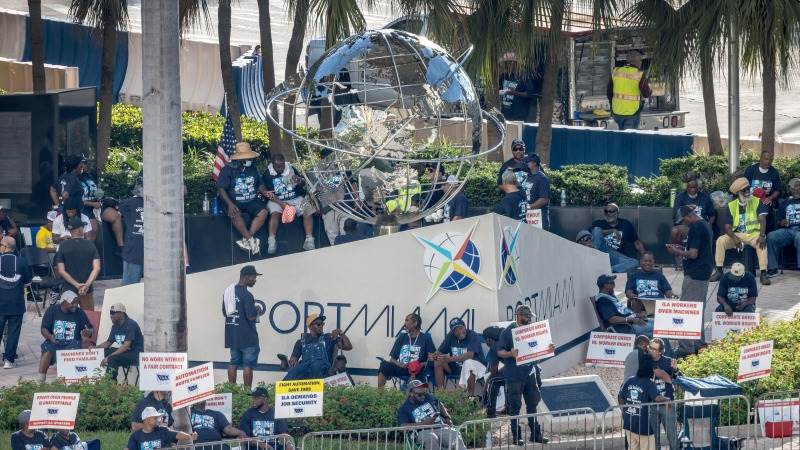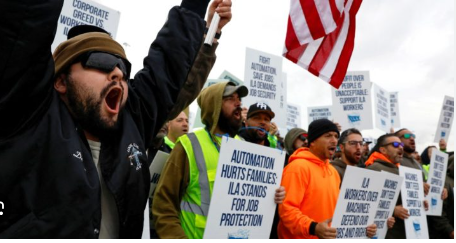After striking a tentative pay agreement, thousands of dockworkers on the East and Gulf Coast will resume work, bringing an end to one of the largest work stoppages in decades.
The International Longshoreman’s Association and the United States Maritime Alliance, or USMX, announced in a joint statement that they had reached a mutual understanding to prolong their existing labor contract until January 15 and to carry on with negotiations.
The union and the alliance announced in a joint statement that they had “reached a tentative agreement on wages” between the International Longshoremen’s Association and the United States Maritime Alliance, Ltd.
“Effective immediately, all current job actions will cease and all work covered by the Master Contract will resume,” added the statement.
The joint statement omitted information on the details of the tentative salary agreement.
The International Longshoremen’s Association, or ILA, claimed that large international cargo carriers had made enormous profits since supply-chain problems during the epidemic drove up freight prices, and that workers haven’t been fairly compensated for those gains.
Major maritime freight and port operators are represented by the United States Maritime Alliance, or USMX. The East and Gulf Coast union also demanded restrictions on port automation. Only wages are mentioned in the joint statement.
The walkout started on Monday at midnight and continued until Tuesday. This is the first ILA strike since 1977 that has caused port closures. 44 days passed in that one.
The ports from Maine to Texas were affected by the labor slowdown. Several governors, including those of Massachusetts, New Jersey, New York, and Maryland, demanded that the labor conflict be resolved quickly.

In order to allow for the reopening of ports and the continuation of negotiations, President Joe Biden commended both parties on Thursday.
“Today’s tentative agreement on a record wage and an extension of the collective bargaining process represents critical progress towards a strong contract,” Biden stated.
With one month remaining in the US presidential campaign, the tentative salary deal and contract restart appear to allay concerns about consumer price increases and supply-chain problems that had been the cause of the prolonged work stoppage. Additionally, it temporarily diffuses a controversial labor dispute.
Biden had publicly asked USMX to make what he called a reasonable offer, and he stated the alliance represents a collection of foreign-owned airlines.
In a statement on Tuesday, Biden stated, “Now is not the time for ocean carriers to refuse to negotiate a fair wage for these essential workers while raking in record profits.”
On Wednesday, with no contract in place, Biden raised the pressure by having White House Chief of Staff Jeff Zients schedule a meeting with CEOs of international carriers for Thursday, say people familiar with the thinking of Biden and the White House.
The sources claimed that National Economic Council Director Lael Brainard succeeded in persuading international shippers to raise their offer, but not much.
The union and USMX will still need to come to agreements on the topic of automation, which has surfaced as a more existential concern. The world’s ports have adopted technology that can make shipping safer, more affordable, and faster; as a result, U.S. ports are now consistently less efficient than those of other countries.
According to a Government Accountability Office assessment from 2024, worker opposition and expense were impeding the use of automation technologies in U.S. ports, while some automation had been adopted.






